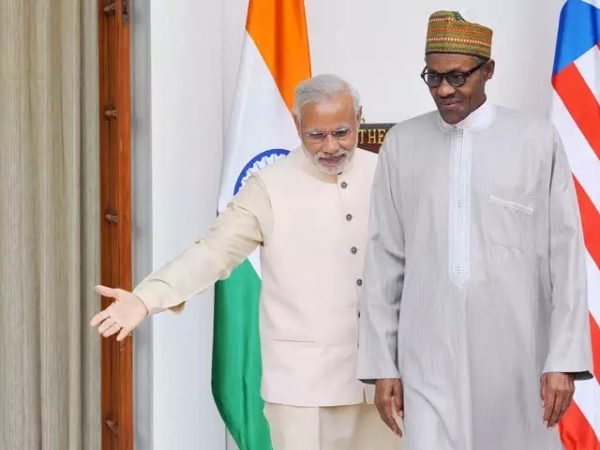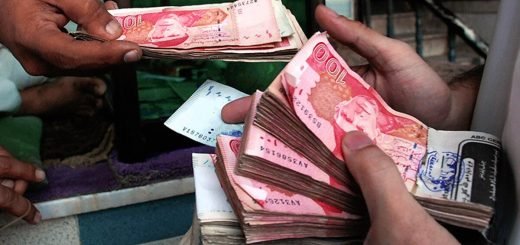Post COVID-19: Reimagining India-Nigeria Relations

“Our development partnership will be guided by your priorities. It will be on terms that will be comfortable for you, that will liberate your potential and not constrain your future.”
These words were the major highlight of Prime Minister Narendra Modi’s address to Ugandan Parliament on 25th of July, 2018, as he propounded the ‘Ten guiding principles’ of India’s engagement with Africa. The ‘Ten guiding principles’ underscores India’s commitment to its relationship with Africa and also shares an alternative vision of engagement based on equal partnership and mutual gains.
Relations between India and African countries predates their respective independence and the same scheme of things finds its validity in India’s relationship with Nigeria. With informal relations being traced from the period of colonialism when Indians were migrated to Nigeria under the system of Indentured labour, India and Nigeria share a mutual affinity and thereby, enjoy warm relations. Possessing commonalities in the strength they have (large democracy, fast-growing economy, a large percentage of youth etc) and the problems they encounter (Religious-Ethnic conflict, terrorism, unemployment etc) makes them natural partners and calls for strong sustained relationship.
Bilateral relation initially built upon historical and political connection has now graduated to comprehensive engagement enveloping diverse sectors including trade & investment, defence, culture and people-to-people contact.
Now, as the humanity faces the worst crisis ever faced, under the wrath of Coronavirus pandemic, and life has come to standstill across continents, India-Nigeria relationship needs to be further strengthened and nurtured to cope up with the misery and trouble that follows.

Trade and Investment
The fact that India has emerged as the largest trading partner of Nigeria globally and Nigeria as the largest trading partner of India in Africa, underlines the existence of broad potential and vast opportunities for mutual gains, that can be realised by working on a range of complementaries. Replacing Iran to become the third-largest crude oil supplier to India in Fiscal year, 2020, Nigeria has emerged as an important partner for India’s energy security paradigm. However, this pandemic and lockdown imposed on March 23 in India, has seen a sharp decline in India’s demand for crude oil, particularly Nigerian crude oil by a whopping 70%.
There is strong potential for the trade-in non-oil sector as well which both parties need to explore for post-COVID economic measures. Both the countries being largely agrarian societies, the scope for cooperation on development of agricultural infrastructure, mechanisation of agricultural, research and development are manifold and needs to be emphasized in the bilateral agenda. Harnessing the time-bound opportunity of demographic dividend in both the countries calls for greater capacity building programme and India with its domestic experience can offer a model of consultative partnership which hinges on human resource development and capacity building. Faced with a similar set of challenges to public health (Infectious disease burden, non-communicable diseases and injuries, poor health infrastructure), there is considerable practical potential for convergent action on the health system and must be brought up to the table. Fears of deglobalisation and less integrated world coupled with shrinking world trade, emanating from the Corona crisis, calls for growing convergence of views at the apex level between both the nation to deepen the bilateral economic relations.
Hence, acknowledging the fact that India is one of many, seeking enhanced partnership with a strategically important, resource-rich nation like Nigeria, our delivery mechanism needs to be strengthened and India’s corporate sector can play a major role in this regard by not being risk-averse as usual and following up with the action on the ground level.

Peace and Security!
With many of the Nigerian presidents trained in Indian military institutions including the likes of present president Muhammudu Buhari, an alumnus of Defence Services Staff College, Wellington, India-Nigeria defence relations dates back to the 1960s. The growing recognition that the idea of security expands beyond the traditional sphere of military security and covers several non-military factors spread across various domains, a major revamp in defence relations is obligatory.
As developing nations with global aspirations, both Nigeria and India face similar security challenges ranging from climate change and diverse societal needs which have been compounded by the spread of terror and newer fears of insecurity in our regions. Battling the rise of extremists groups such as Boko Haram, Nigeria can gain tremendously with India’s long experience in countering terrorism and insurgency, thus, there is the scope of expanding the cooperation in areas such as counter-terrorism by redirecting the focus on capacity building, information sharing and technology upgradation.
Amidst growing concern that post-Covid world with growing misery and poverty, mounted due to looming economic crisis, can again shift to ‘Anthropogenic’ model of development discrediting all the concern of climate change and global warming, India and Nigeria need to screw up the courage to tackle the concern and must stand by their long term cause of green and safe planet. Though the present Indian government in its pursuit of expanding engagement has tried to focus on otherwise traditionally neglected region of Atlantic coast in Indian Diplomacy, with a slew of measures like Atlantic Africa initiative, a sustained engaging relationship with Nigeria in coming years is a prerequisite.
Global Governance
The multi-faceted crisis in the form of Covid-19 has already exposed the inefficacy of institutions created by the victors of World War II. Existing global institutional framework bereft of contemporary realities is indicative of a deeper malaise and thereby, a new social contract between States and the international system is need of the hour. Sharing a similar world view with regard to global governance,
India and Nigeria have always pitched for reform in institutions such as the United Nations and the World Trade Organisation. A significant part of the South-South cooperation, both the countries have articulated the voice of the developing world at various multilateral forums in the past as well. Keeping in mind the wider possibilities of Africa being transformed into the place of Great power geopolitical contest, there is greater scope for cooperation between both the nations in order to eliminate such tendencies and also in their bid to prioritise the issues of Global South at multilateral forums.
Though India’s relationship with Nigeria is yet to peak and there are possibilities for both parties to reap benefit from this relationship, the dynamism showed by both the sides in last few years is a welcome change and needs to be sustained. As pointed out by B.N. Reddy, former High Commissioner of India to Nigeria in an interview, the bilateral relations shared by both the nations are now characterized by warmth and forward-looking approach and there is vast scope for cooperation in new frontiers, thus India must align its concern with the Nigerian priorities and transform the goodwill generated over the year into concrete mutual gains.


















